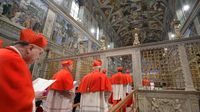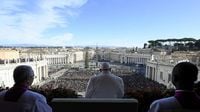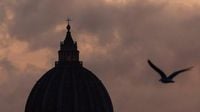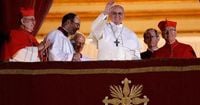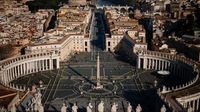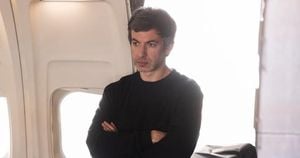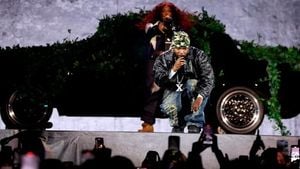The death of Pope Francis has sent shockwaves through the Catholic community, triggering an age-old process steeped in tradition to elect a new pontiff. On April 21, 2025, at 07:35 AM, the chamberlain Kevin Farrell confirmed the passing of the 88-year-old leader of the Catholic Church. Following this announcement, Pope Francis's body will lie in state at St. Peter's Basilica, allowing the faithful to pay their respects before the commencement of the papal conclave.
The papal conclave, the process by which a new pope is elected, is set to begin 15 to 20 days after the Pope's death. This time frame allows cardinals from around the world to gather in Vatican City. The conclave is a highly secretive affair, with only cardinals under the age of 80 participating in the voting process. Currently, there are 140 eligible electoral cardinals, a number that exceeds the traditional limit of 120, a change that could influence the outcome of the election.
During the conclave, the College of Cardinals will convene in the Sistine Chapel, a site steeped in history and tradition, to deliberate and vote for the next pope. The voting process is designed to ensure confidentiality; each cardinal casts their vote in secret, writing the name of their preferred candidate on a ballot that reads 'Eligo in Summen Pontificem' (I elect as supreme pontiff). A two-thirds majority, or 94 votes, is required to elect the new pope.
If no candidate receives the required majority, the cardinals will continue to vote, with up to four rounds of voting taking place daily. If after three days of voting no consensus is reached, the conclave will pause for a day of prayer and reflection. This cycle can repeat up to seven times, ensuring that the process remains thorough and contemplative.
Historically, the methods for electing a pope have evolved. Initially, popes were chosen by acclamation or compromise, but these methods have been replaced by the current system of individual and secret voting. The last conclave, which elected Pope Francis in 2013, was notably brief, concluding after just five rounds of voting over two days.
As the cardinals gather, they will also discuss the challenges facing the Catholic Church and the qualities necessary in the next pontiff. The period following the pope's death is known as 'Sede vacante' (vacant seat), during which the governance of the Church is temporarily entrusted to the College of Cardinals. During this time, they are limited to addressing ordinary matters and preparing for the upcoming election.
Once a new pope is elected, the announcement is made with the traditional phrase 'Habemus Papam' (We have a pope), and the newly elected pontiff is presented to the public from the balcony of St. Peter's Basilica. This moment is anticipated by many, as it marks the beginning of a new chapter for the Catholic Church.
The election process is not only significant for the Catholic community but also draws the attention of the world. The conclave operates under strict protocols, including the prohibition of any electronic devices to ensure confidentiality. This tradition dates back to 1996 when Pope John Paul II banned recording devices from the conclave, emphasizing the need for secrecy during this critical time.
After each round of voting, if no candidate emerges victorious, the ballots are burned, producing black smoke as a signal to the public that a decision has not yet been reached. Conversely, white smoke indicates that a new pope has been elected. This system of signaling has been refined over the years to ensure clarity and avoid confusion.
In terms of influence, it's worth noting that Pope Francis appointed 110 of the current 140 electoral cardinals, potentially swaying the election in favor of candidates who align with his vision for the Church. This dynamic adds an additional layer of intrigue to the upcoming conclave.
As the Catholic community mourns the loss of Pope Francis, they also look forward to the future with hope and anticipation. The coming weeks will be crucial as the cardinals prepare to elect a new leader who will guide the Church through its next chapter. The eyes of the world will be on Vatican City as the conclave unfolds, awaiting the emergence of the next spiritual leader of the Catholic Church.
The upcoming conclave is not just about electing a new pope; it is about shaping the future of the Catholic Church in a rapidly changing world. With numerous challenges ahead, including issues of modernity, morality, and global outreach, the selection of the next pope will have lasting implications for millions of Catholics worldwide.
